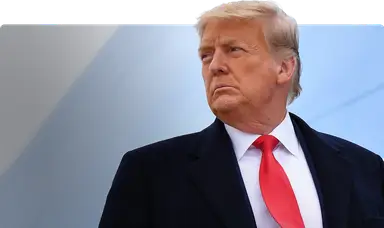Trump’s Peace Push and Xi’s Rising Anxiety
Amid recent U.S. efforts to accelerate Russia–Ukraine peace talks in Moscow’s favor, China is growing increasingly uneasy as North Korea and Russia deepen their ties through a new strategic treaty and Pyongyang’s troop deployments. The U.S. negotiations with Russia appear motivated not only by the goal of ending the Ukraine conflict but also by a broader strategy to reshape the global security order through strengthened bilateral relations.
The Trump administration’s vision for international security architecture centers on further isolating China, a goal that may involve engaging not only with Russia but also with North Korea. Disappointed by Beijing’s lukewarm response to the North Korea-China, Russia alignment and the nuclear issue, Kim Jong-un has increasingly turned to President Putin. Putin, who maintains regular communication with Trump and has shown support for North Korea’s stance, is seen as a potential mediator.This context helps explain Kim’s determined effort to strengthen ties with Russia.
Chinese President Xi Jinping is likely feeling a mix of anxiety and unease as he contemplates a potential “bromance” between Putin, Trump, and Kim. The prospect of shifting U.S.–Russia relations following Trump’s return to power, combined with North Korea’s growing tilt toward Russia, have heightened Beijing’s fears of losing its longstanding strategic foothold in Northeast Asia and its traditional influence over Pyongyang. In response, China will likely prioritize repairing its strained ties with North Korea in an effort to bring it back within its sphere of influence.
Before drawing any hasty conclusions, however, China must carefully consider a range of uncertainties that could shape future developments. One key factor is the uncertainty surrounding the shifting goals of negotiationand the potential resumption and outcomes of U.S.–North Korea talks. Since the breakdown of the Hanoi summit, Kim Jong-un has advanced his nuclear capabilities, and in September of last year—just before the U.S. presidential election—he unexpectedly unveiled a highly enriched uranium (HEU) production facility, which was a major sticking point in the Hanoi negotiations. This move is widely seen as a clear message that Kim wants to be recognized as a nuclear-weapon state while rejecting talks focused on denuclearization.
Some experts suggest that President Trump’s public reference to North Korea as a “nuclear power,” along with his display of personal rapport with Kim, makes Kim’s goal more likely to become reality. However, assuming this to mean that Trump intends to enter into nuclear arms reduction talks with Kim requires more caution. In fact, the Trump administration has recently reaffirmed its commitment to the principle of complete denuclearization of North Korea through joint statements with the foreign ministers of South Korea and Japan, as well as at the G7 Foreign Ministers’ Meeting. This highlights a clear intention to maintain close coordination with allies on the North Korea issue.
Second, the durability of the deepening North Korea-Russia relationship remains uncertain. President Putin’s primaty post-war priority will likely be normalizing Russia’s economy, including the easing of international sanctions and recovery from wartime damage. Given the widespread Russophobia in Europe, Moscow will likely prioritize a stronger presence in the Asia-Pacific economy, shifting its strategic priorities away from North Korea—whose value to Russia may diminish after the war— and toward South Korea instead. If this shift occurs, Kim, who has provided strong support for Putin’s war effort, could feel a deep sense of betrayal and resentment, potentially turing to China.
The issue for China is that if it overlooks these variables and rushes to restore relations with North Korea, Pyongyang could strategically exploit the situation, potentially causing irreversible damage to Chinese national interests. North Korea is likely to highlight its growing ties with Russia to inflate its bargaining position and raise the cost of improving relations with Beijing. With nuclear arms control negotiations with the United States in mind, Kim Jong-un may use this dynamic to pressure China into signaling that denuclearization is no longer a viable goal. Additionally, Kim may demand increased economic assistance from China, which would effectively undermine efforts to enforce sanctions.
If China gives in to such demands, Kim—bolstered by support from both Russia and China—could become emboldened to pursue unprecedented levels of military adventurism, including nuclear and/or conventional provocations, to elevate the North Korean nuclear issue to a higher priority. The United States might use this escalation as a rationale for redeploying tactical nuclear weapons to the Korean Peninsula or significantly increasing strategic military assets in the region to intensify pressure on China.
China must be mindful that retreating from its principled stance on denuclearization to again favor with North Korea could backfire with a serious nuclear armament debate in South Korea. With North Korea posing a real and escalating nuclear threat, international criticism of Seoul’s potential nuclear ambitions may not be as strong as in the past. In fact, support for South Korean nuclear armament is already gaining traction within the United States. Such a shift could trigger a broader wave of “nuclear contagion” in Taiwan and Japan, an outcome that would pose a nightmare scenario for Xi’s vision of the “Chinese Dream.”
Amid the complex dynamics of Northeast Asian geopolitics, China must carefully assess which course of action best aligns with its core national interests. Kim Jong-un’s emphasis of his growing ties with Russia seem to be less about “decoupling” from China and more about strategically drawing Beijing into his game. Despite his personal mistrust and dissatisfaction, Kim is well aware that China remains an indispensable strategic partner. Thus, rather than hastily siding with North Korea’s approach, China would be better served by upholding its principles of denuclearization and support for UN sanctions, while continuing to engage with and persuade Puongyang.

